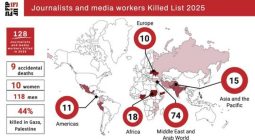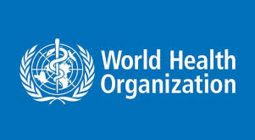The World Health Organization (WHO) and global partners are calling for the protection of people’s health to be recognized as the most powerful driver of climate action.
A new 2025 global report of the Lancet Countdown on Health and Climate Change warns that continued overreliance on fossil fuels and failure to adapt to a heating world are already having a devastating toll on human health.
The released report produced in collaboration with the WHO finds that 12 of 20 key indicators tracking health threats have reached record levels, showing how climate inaction is costing lives, straining health systems, and undermining economies.
Rising heat-related deaths, Wildfire and drought impacts, Economic strain, Fossil fuel subsidies dwarf climate finance, Benefits of climate action are the key findings from the 2025 Lancet Countdown report.
While some governments have slowed their climate commitments, the report shows that cities, communities and the health sector are leading the way. Nearly all reporting cities (834 of 858) have completed or plan to complete climate risk assessments. The energy transition is delivering cleaner air, healthier jobs, measurable economic growth and inward investment.
The health sector itself has shown impressive climate leadership, with health-related greenhouse gases (GHG) emissions falling 16% globally between 2021 and 2022, while improving care quality.
Data submitted by WHO show that a growing number of health systems are assessing risks and preparing for the dangerous future that’s coming.
As the world prepares for COP30 in Belém, Brazil, the findings of the 2025 Global Report of the Lancet Countdown provide a key evidence base for accelerating health-centered climate action.
The Lancet Countdown on Health and Climate Change was established in partnership with Wellcome, which continues to provide core financial support. The Lancet Countdown is led by University College London, in partnership with WHO and 71 academic institutions and UN agencies worldwide.
Cholera Outbreak
In another WHO report said from 1 January to 28 September 2025, a cumulative total of 518,324 cholera cases and 6,508 deaths were reported from 32 countries across five WHO regions, with the Eastern Mediterranean Region recording the highest numbers, followed by the African Region, the South-East Asia Region, the Region of the Americas, and the Western Pacific Region. No cases were reported from the European Region during this period.
In September 2025, a total of 45,765 new cholera and acute watery diarrhoea cases were reported from 21 countries across four WHO regions, showing a 27% decrease from August.
The period also saw 601 cholera-related deaths globally, a 37% decrease from the previous month. As of 28 September, the preliminary number of deaths reported in 2025 has already surpassed the 2024 total of 6,028, which was itself a 50% increase on 2023.
Meanwhile, the WHO condemns the reported killing of more than 460 patients and their companions, as well as the abduction of six health workers, on 28 October from the Saudi Maternity Hospital in El Fasher.
This latest tragedy is taking place in the rapidly worsening crisis in North Darfur’s El Fasher, where escalating violence, siege conditions and rising hunger and disease are killing civilians, including children, and collapsing an already-fragile health system.
On 26 October, Saudi Maternity Hospital, the only partially functioning hospital in El Fasher, was attacked for the fourth time in a month, killing one nurse and injuring three other health workers. On 28 October, six health workers, four doctors, a nurse and a pharmacist, were abducted. On the same day, more than 460 patients and their companions were reportedly shot and killed in the hospital.
Since the conflict began, 46 health workers have been killed in El Fasher and another 48 injured.
More than 260 000 people remain trapped in El Fasher with almost no access to food, clean water, or medical care.








